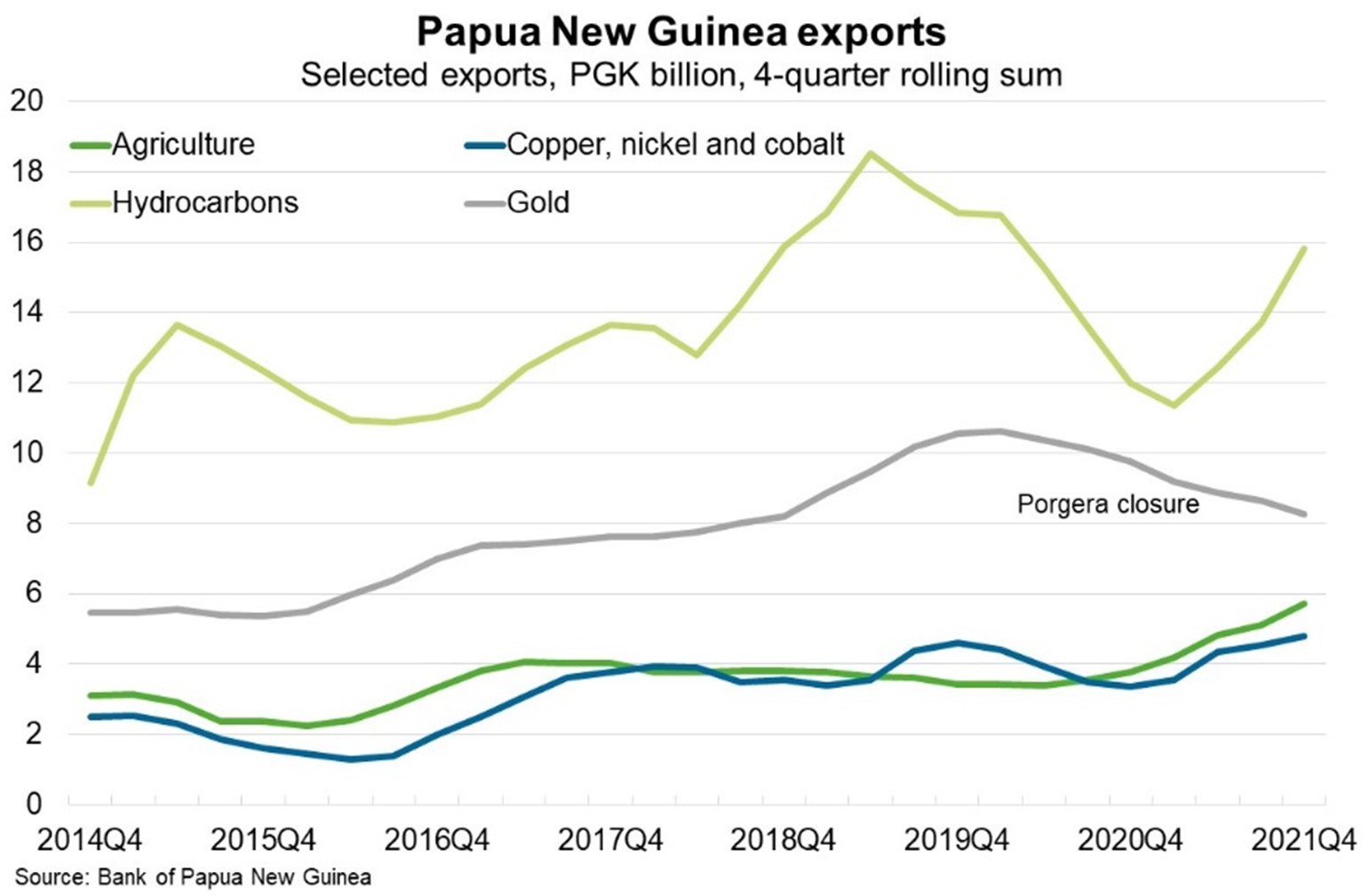PNG—Prime Minister’s re-election indicates political and policy stability
Prime Minister James Marape was returned following a decisive election victory, declared in August. The new Marape government is likely to continue its existing policy agenda, including efforts to secure a greater share of profits from the resources sector. This means that new resource projects or lease extensions of existing mines remain vulnerable to setbacks in negotiations between the government and corporates. For example, prolonged and tense negotiations over the renewal of the Porgera gold mine lease has dented gold production and exports.
On the positive side, there is unlikely to be any adjustments to resource sector legislation for existing projects, given the need to maintain a favourable foreign investment environment. Negotiations on some economically significant projects may also be expedited, as happened for Papua LNG and P’nyang gas projects in 2021 and early 2022. The government takes office as progress on gas projects, increasing energy production and higher global commodity prices are boosting exports (Chart) and foreign exchange (FX) inflows. But an overvalued exchange rate and ongoing, albeit easing, FX shortages, remain constraints on business confidence and investment.
Marape’s decisive electoral victory reduces the risk that the violence and irregularities that marred the polls could impede the new government’s political transition. Marape will face few parliamentary obstacles to pursuing his agenda in the near term—because no-confidence motions against the Prime Minister are not permitted for 18 months. However, while the election result for Marape’s PANGU party was the second most successful in PNG’s history, it won only 33% of seats. Instead, the government is a large coalition including 23 parties, and Marape will face challenges accommodating all interests. As political allegiances are fluid in PNG politics, political and policy instability could return in 2024.

